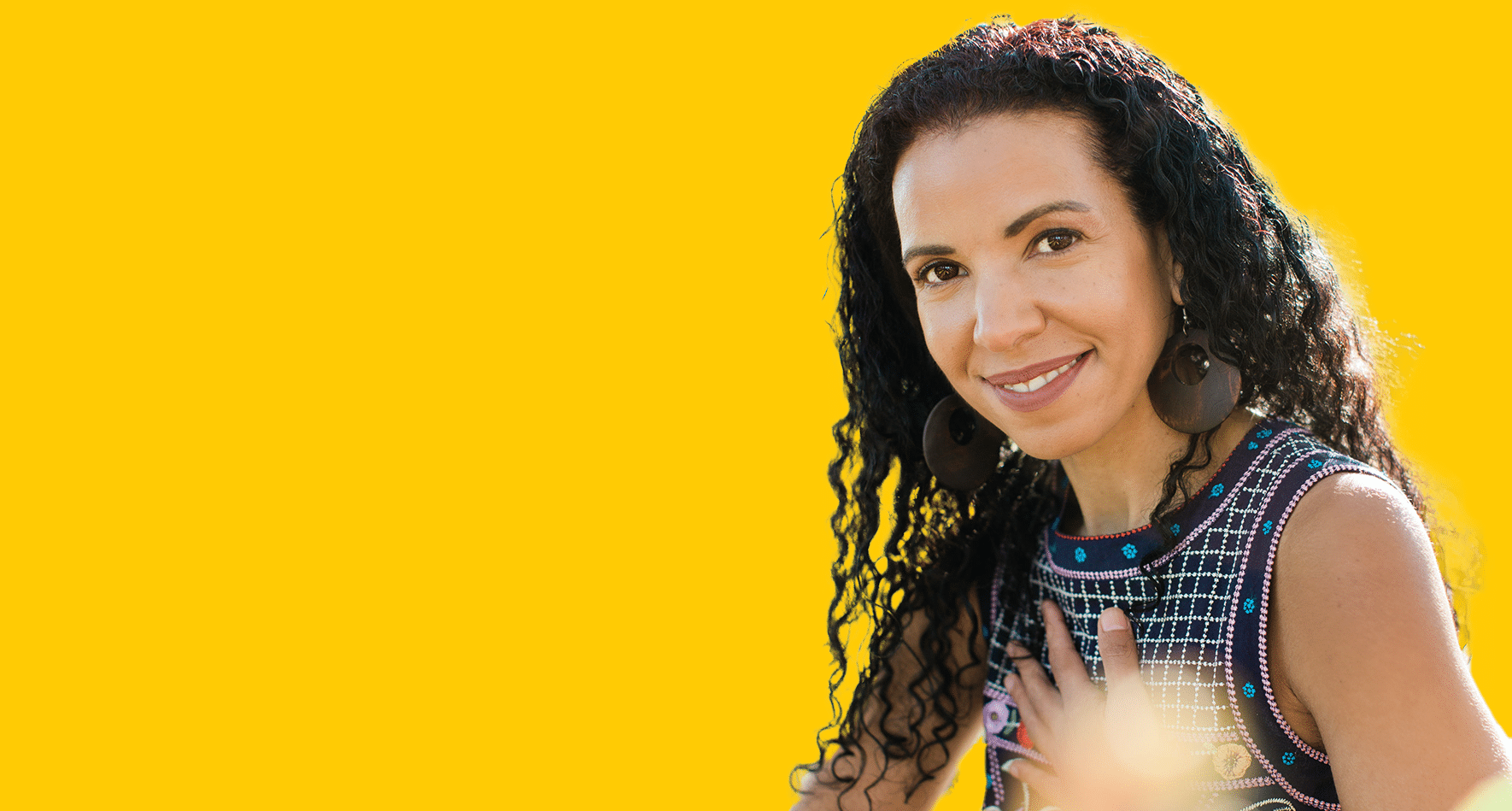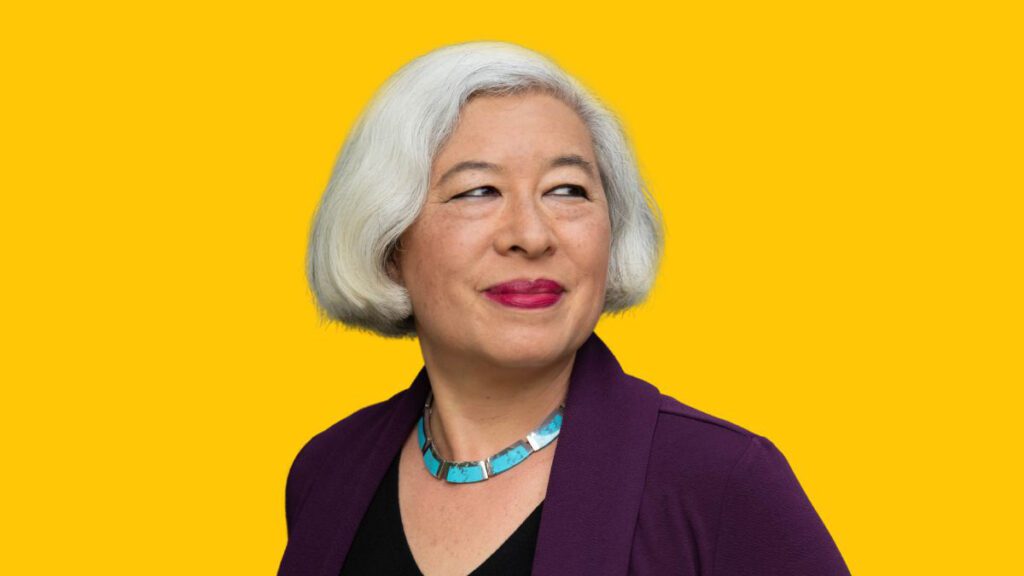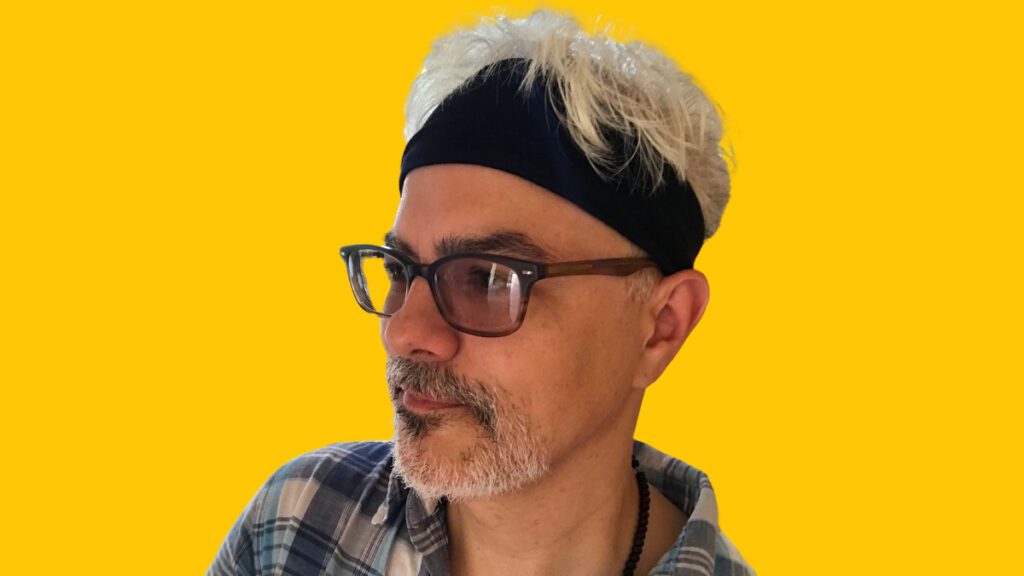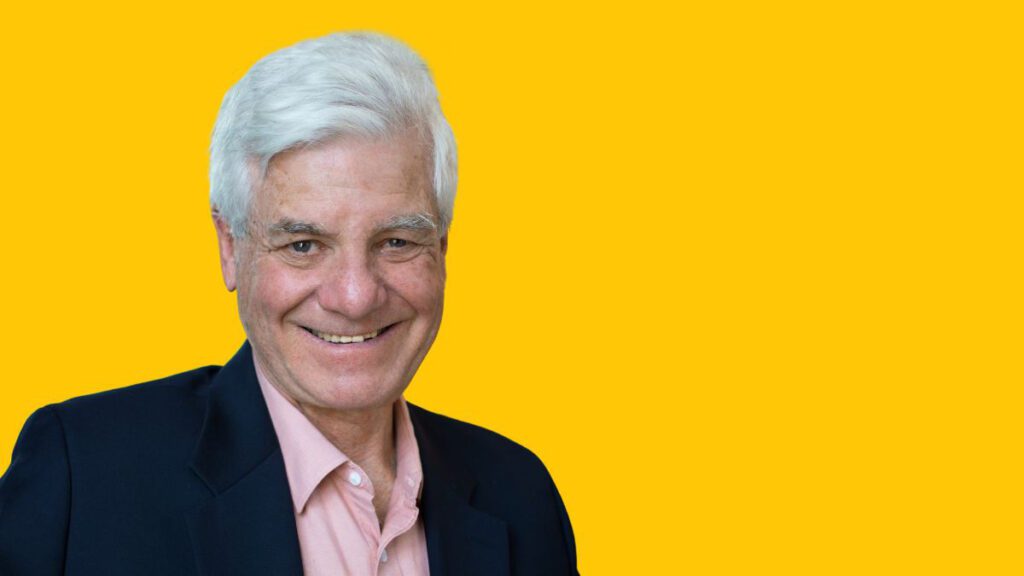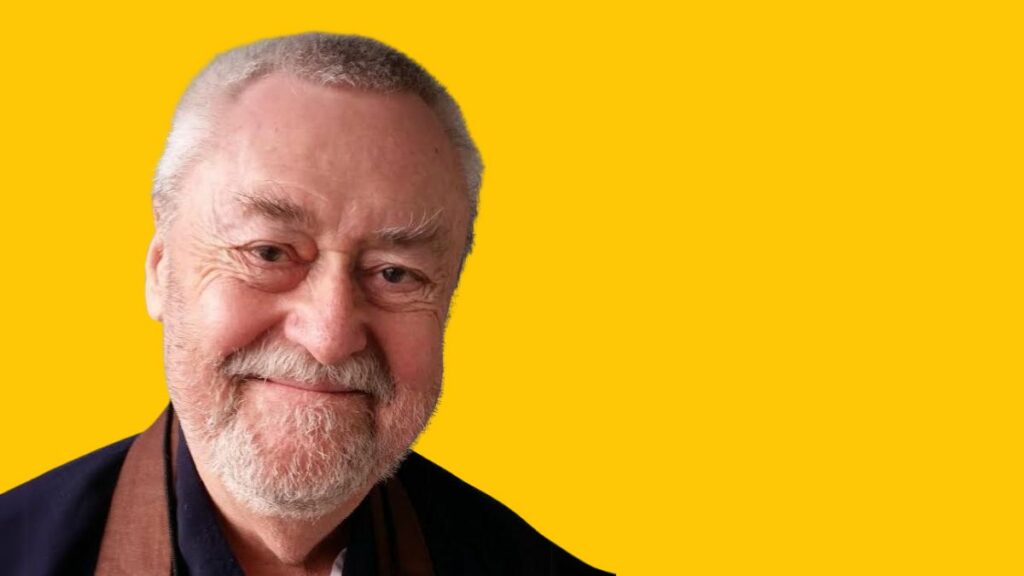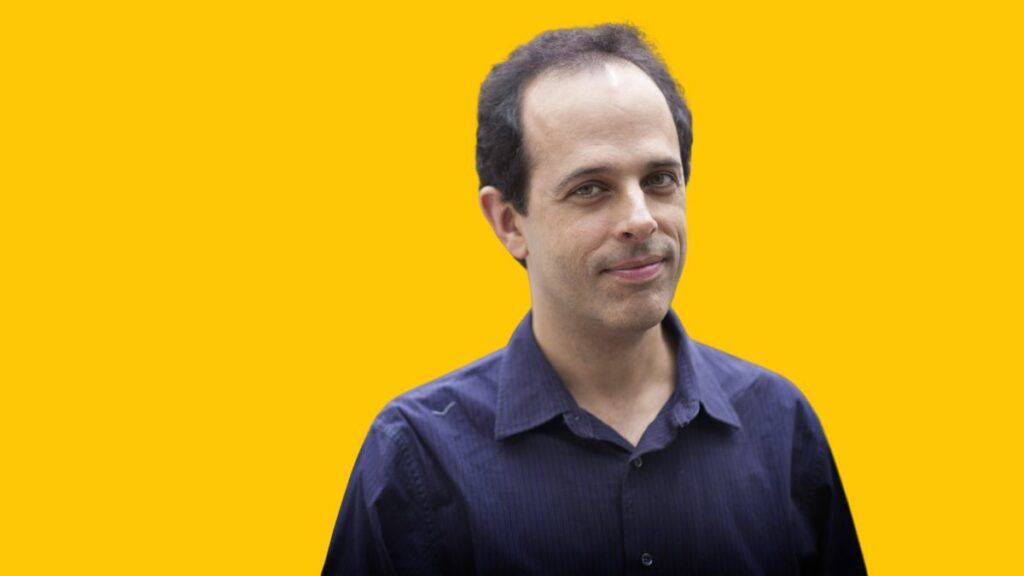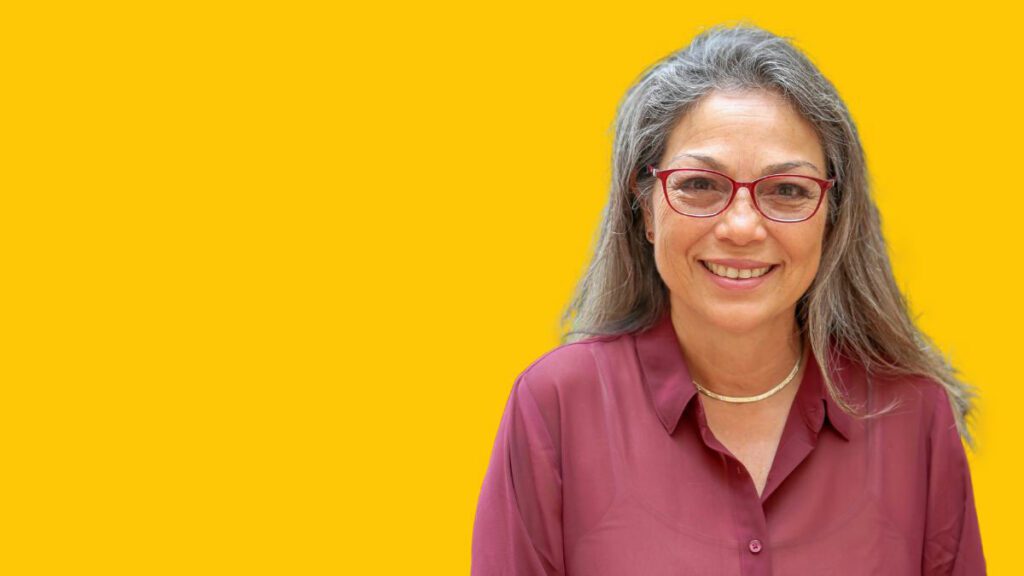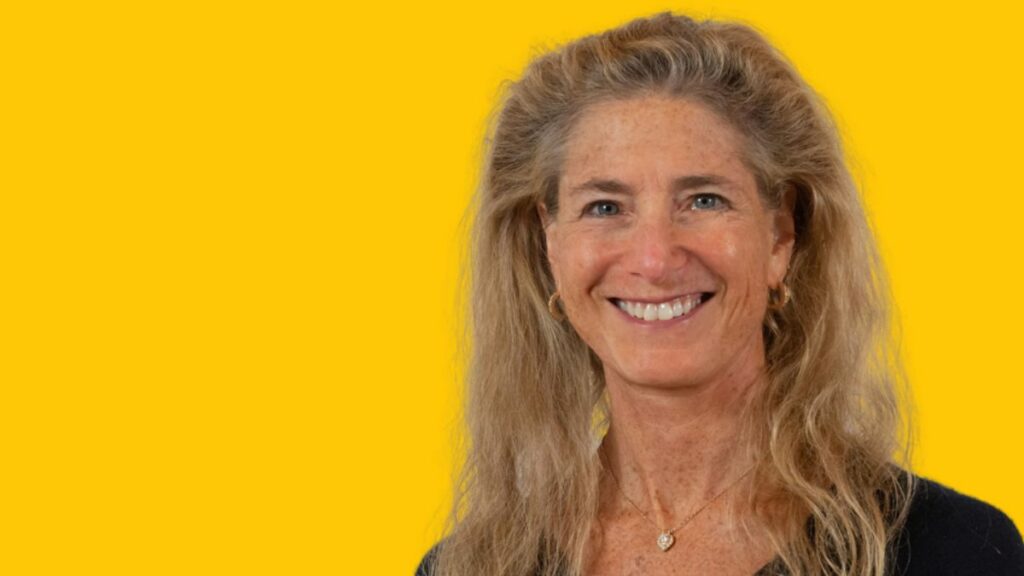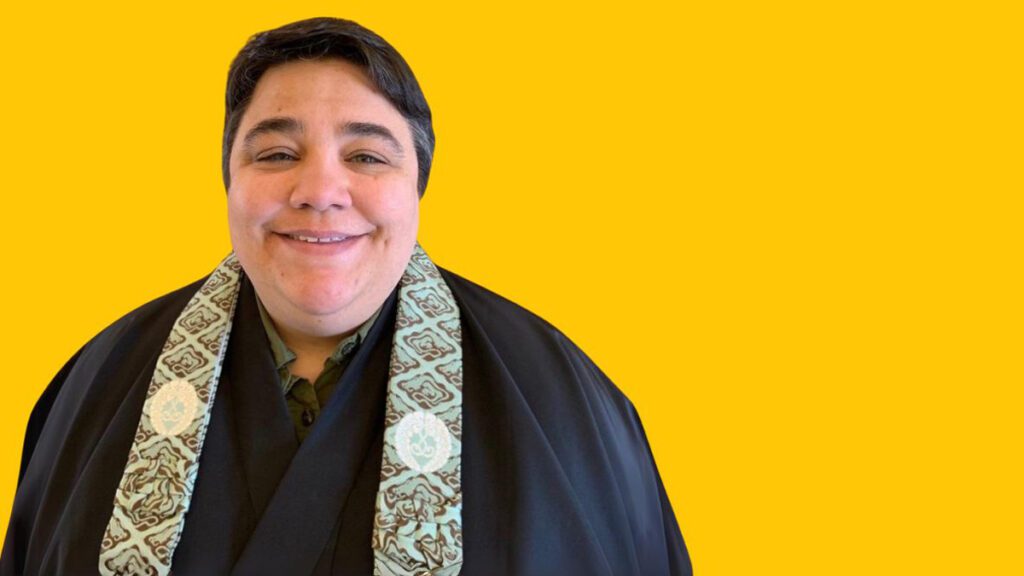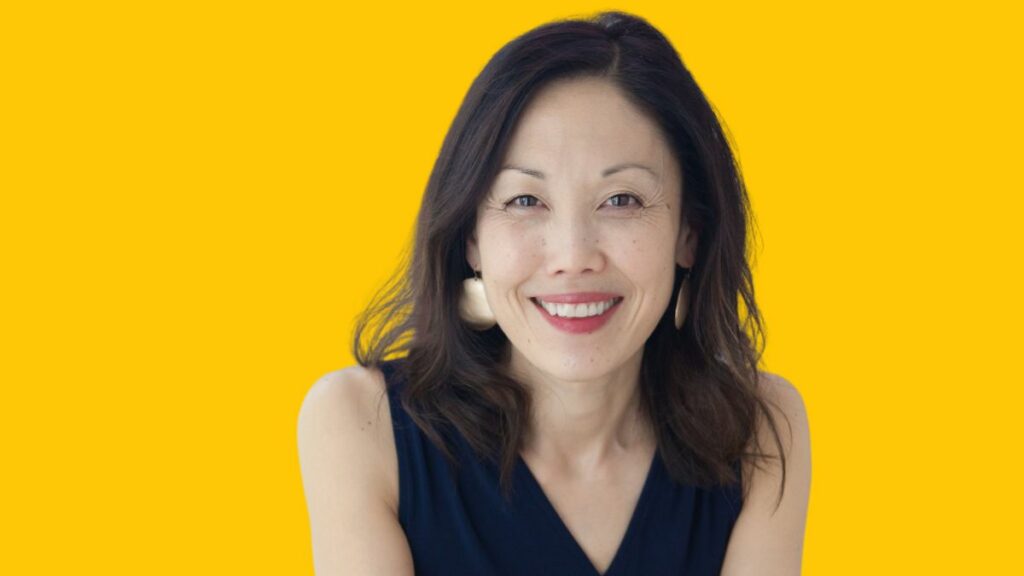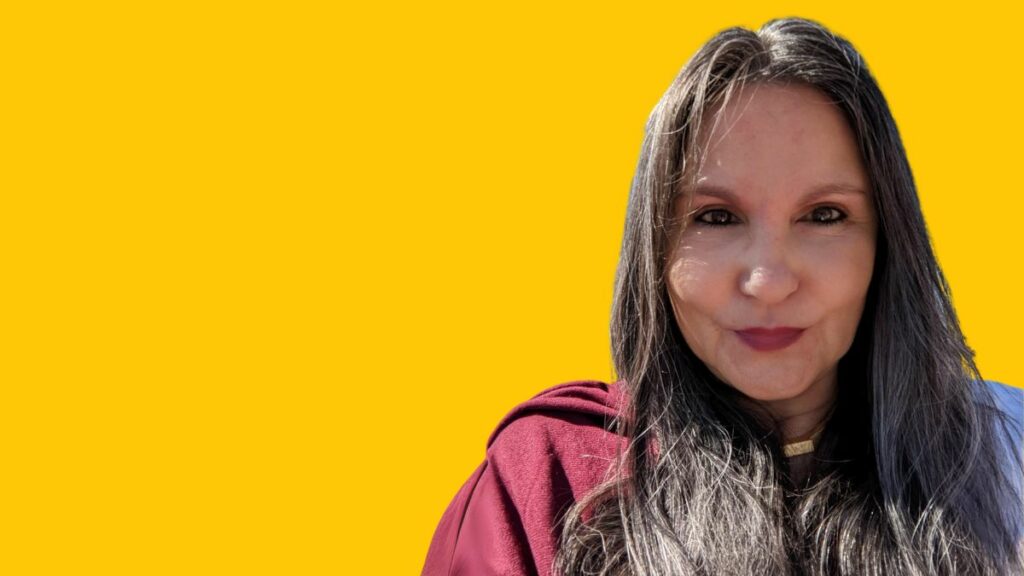Lion’s Roar’s Pamela Ayo Yetunde talks to Spring Washam, author of The Spirit of Harriet Tubman: Awakening from the Underground, about the power of calling upon the spirit of this veritable bodhisattva to heal the particular wounds of American injustice and tragedy.
Sandra Hannebohm: Welcome to the Lion’s Roar podcast from the publishers of Lion’s Roar magazine and Buddhadharma, The Practitioner’s Guide. I’m Sandra Hannebohm.
The colonial slave trade ended in 1865 in the United States. But the 400-year-old institution of slavery has a long-lasting legacy in the form of ideologies that justify exploitation, injustice, and inequality. None of that has an official end date.
Spring Washam says this is why Harriet Tubman has an important message for these times. A warrior, a caretaker, brilliant strategist, and one of the most iconic figures in black history. The woman who not only escaped enslavement herself but returned to the hellfire and pulled many more from the flame is a veritable bodhisattva. Lion’s Roar’s Pamela Ayo Yetunde talks to Spring Washam, author of The Spirit of Harriet Tubman: Awakening from the Underground, about the powerful concept of Harriet Tubman as a spirit to be called upon to heal the particular wounds of our time.
Pamela Ayo Yetunde: Welcome everyone to the Lion’s Roar podcast. With me today is dharma teacher, shaman, activist, advocate, and writer Spring Washam. Spring is the author of a brand new book called The Spirit of Harriet Tubman: Awakening from the Underground.
And I just wanna let you all know I have been waiting for this conversation for a very long time. I met Spring several years ago. So I don’t know if Spring remembers this, uh, when I lived in the San Francisco Bay Area, our paths would cross in dharma, uh, communities. We saw each other again at The Gathering in 2018, and I’ve read this book. I love it, and I think you’ll love it too. And I just wanna say thank you, Spring, so much for all that you’ve done to bring this book to manifest it. And thank you for being a guest on our podcast.
Spring Washam: Oh, I feel so honored. Thank you. And I, yes, I was remembering our time at The Gathering, and I found this photo just yesterday of us outside with our, the group photo of the teachers with our fist raised, and so much has happened since then, but thank you for having me as a guest, and I’m so excited to be with you today.
Pamela Ayo Yetunde: Well, you’re, you’re most welcome and so much has happened. Your book has happened. That’s one of the things that has happened. Um, but I wanna go back and say that you were, uh, the person who opened up the Black and Buddhist Summit, and when Cheryl Giles and I were looking at, well, who would we like to open this? We, we decided that we wanted to invite you to open it because you were bringing Harriet Tubman into dharma community in a way that I had never experienced before, and now we have this book. So why don’t, why don’t we begin with what happened between the Church of Harriet Tubman and the Underground Railroad and the publication of your book?
Spring Washam: Yeah. Well, you know, it was so, was so powerful. Well, we’ll have to kind of look at 2020, the summer of 2020, and, um, that’s when I did my first course. I set up, you know, I, Harriet Tubman, a week before George Floyd passed away, died, was murdered, actually. Harriet came to me in a, in a dream, and then I started to have all these experiences with Harriet Tubman coming, and visually I would see her.
I felt her spirit holding my hand. It was; I never had experienced anything like this before. It was like a ancestor crossover, you know? It was definitely like the dream time or something, but yet I was not asleep. I was awake, you know, many of these experiences.
So during that time, like so many of us, I decided to do a five-week course. I just a class. I threw it up online thinking the darn of Harriet Tubman, I’ll just put it out to my mailing list. No problem. Five Sundays, everybody was doing that, right? But the class really went viral. I had hundreds of tickets sold. Hundreds of people were coming in. And that five-week class, nobody wanted it to end. At the end of that five weeks, people were like, no, we weren’t. We’re gonna come back on Sunday. So I turned it into a five-month journey called the Church of Harriet. And um, and it lasted all the way through the presidential election.
And then after the election it felt like, okay, now I’ve gotta go write the book, friends, you know, and it was just an offered class. It was a pay, it was a donation-based Sunday gathering, but it had so much beauty and so much momentum. It was very sad. People are so mad at me for ending it, but I was like, look. This is like a big picture, you know, and assistance helping me is a big thing to run an ongoing weekly sanga, but it was such a joy.
So that ended in, um, late 2020, early 2021. I started really working on the book. Um, and um, that’s the journey I was on for the next year, year and a half was really working on it.
Pamela Ayo Yetunde: Well, thank you for inviting us to be on this journey with you.
Spring Washam: Oh well, labor of love.
Pamela Ayo Yetunde: Yeah, I know, I know people are upset, but you know, we do learn how to let go.
Spring Washam: Yes.
Pamela Ayo Yetunde: And, and on that note, you know, our, our listeners are typically Buddhist practitioners, right? And so, I wanna say that to bring Harriet Tubman into our dharma discourse, as you will, it’s like, in a way, bringing in a new bodhisattva, would you agree?
Spring Washam: Absolutely. I mean, this is completely how I see Harriet Tubman as a bodhisattva. I think this is how Harriet also kind of identifies herself as I disclose, you know, step-by-step in the book. It’s revealing her true nature with each chapter. Um, and there’s a chapter where I finally say, who are you? What are you, what are, what are you doing?
You know, now what were you doing then? So I think the word bodhisattva, um, is so applicable. I mean, I think she’s in the club. She’s a, she’s a member of, of, um, that way of being, that, that dedication. So I find Harriet Tubman’s life and legacy deeply dharmic.
Pamela Ayo Yetunde: I do too. And I think that you illustrate that very well in this book. Now in your writing the book, I could see, and you were very, uh, transparent about this, about your concern about what people would think about your experiences and writing about your experiences. And so I wanna say that, uh, I hope that you feel safe with me in this conversation. Uh, I have not had the same experiences you have had. One thing that we do have in common, though, is that we consult people who have died. And I don’t think that we’re the only people who have done that, who have gone to people who have gone on for wisdom and support.
Spring Washam: Absolutely.
Pamela Ayo Yetunde: I believe this is a beautiful thing that you are inviting people into that you too can go to your ancestors, adopted or otherwise, and seek wisdom and support for the issues that you’re facing right now. So I wanna thank you for that.
Spring Washam: Oh, you’re welcome. Yes. Ask me anything. I have been, you know, I tried to write it all with total honesty, you know, and, and to share it all is just an honor.
Pamela Ayo Yetunde: Yeah. And I’m glad that you did. Now, there is something that we have in common that I wanna bring up right now before we get back into the book, which is in addition to looking to our ancestors for support and wisdom and guidance. You and I started our books with great appreciation for negro spirituals, the black church, and black gospel music.
Spring Washam: Mm-hmm.
Pamela Ayo Yetunde: You and I also attended Glide Memorial United Methodist Church, and I’m wondering when you were there because I was there in 1992 to about 1994. Were you there then?
Spring Washam: I was there earlier than that. My first times going there was just 13. Yeah, so I was there a bit earlier than that, but, um… yeah, I also found out Maya Angelou, that was one of her churches, she had adopted like five churches that were home churches in America, and Glide was also one of them, you know? Hmm.
Pamela Ayo Yetunde: Right. So one of the reasons why I’m mentioning this church, and you were pastored too by Reverend Cecil Williams. So, so was I. We both consult with people who have passed on. What does, uh, your embrace of the black church, black gospel music, black spirituals, negro spirituals… what does that do to your spirituality such that you can have a relationship with the spirit of Harriet Tubman?
Spring Washam: Well, you know, I think for a long time, you know, and I think we talked about this at the gathering of these African American teachers, this almost feels like when I stepped into Buddhism, and I wrote about it like I felt like I had to choose between the black church or maybe I don’t belong here. You know, my hair’s too curly, I’m too wild. I don’t know. Somehow I felt like I had to, hmm, disconnect in order to be a Buddhist practitioner. Like we have this thing where we feel like maybe we have to let go of our identity and sort of join onto this other way of being or we, we think, oh, maybe these songs, this tradition, this isn’t the right path.
So what I unknowingly, I think I had done was I created like a schism there. And in order for me to truly connect to the spirit of Harriet Tubman is almost like I had to fix that route. But I didn’t know where it had been severed and how, and then as I was journeying with Harriet, you know, every chapter was like self-realization, awakening, awareness.
I started to see, you know, from my childhood, where it got disconnected. And also to see just how I chose that unknowingly. And I don’t think I had a full awe of the power that’s connected through the black church. I was like, through Harriet, I was like, no, there’s a stream of liberation run through me, Dr. King, it’s a life there. It’s a channel there. Um, through Moses, you know, we would say the historical Moses. That I didn’t appreciate or I didn’t understand, and I didn’t even realize the root was so severed in how I was lost in a way without it. I have these new roots, but this is like one that’s fundamentally my spirit.
And I think that, that there’s a little danger, and I think that’s happened to many of us as we try to reconnect, like, well, who am I in this new tradition, this ancient tradition, but newer, um, to my ancestors or at least newer in some form or fashion, new, new ways of expressing the dharma’s ancient, right, this is a new vehicle expression. Um, or maybe a new expression of an old vehicle. That’s a better way of putting it. Um, so Harriet, through Harriet, I was able to fix something that I was searching for and frustrated and sad and longing, but I was like, you know, like the story of, uh, you know, uh, looking for a key everywhere, but where it is, you know, like looking for a key where the light is not where I lost it or I couldn’t figure out what was wrong and when this root was fixed, it was like, oh yes, okay. Somehow it’s seeing the connection between these two traditions, not choosing one or the other.
Pamela Ayo Yetunde: Thank you. You know, Spring, you just explained your process for reclaiming your spiritual heritage and roots, which reminds me of Thich Nhat Hanh and Thich Nhat Hanh taught us to, even if we are embracing Buddhism as a new tradition, don’t throw the old out as if you’re throwing the baby out with the bathwater. Reclaim your root tradition and bring that forward as you practice Buddhism. So thank you for sharing the way that you were able to do that with yourself.
Spring Washam: Mmm.
Pamela Ayo Yetunde: And also in a way that prepared you to receive Harriet.
Spring Washam: Yeah.
Pamela Ayo Yetunde: I’m, I’m chuckling because I know that there are going to be people here who are like, what does that mean to receive Harriet? And the way you talk about it in your book is through sessions.
Spring Washam: Mm-hmm.
Pamela Ayo Yetunde: So, would you say more about the sessions that you had with Harriet?
Spring Washam: Yeah, I try to avoid the word channeling because I don’t feel like that’s what it is. It’s not like I’m gonna go and go, I will now, you know, channel the spirit of Harriet, Harriet, Seth. You know, I’m not doing that. I’m like sitting here and then calling Harriet and going into a different world and Harriet speaking through me.
That’s definitely not what was happening. And to say I was as shocked as anyone. I am still shocked. I am still integrating, I’m still processing this experience. I think for the rest of my life, I’ll be making sense of this, um, book, this relationship that continues to evolve in understanding it because I’m still in awe.
I’m still in awe that it happened. I’m still in awe that it’s happening. So, um, the sessions were really, um, after I agreed, I read in my second chapter book about how, when I was teaching my online class, unbeknownst to me, the vice president of Hay House was in one of the hundreds of people in the Zoom room. You know those faces. And as you’re scrolling through, I didn’t know and reached out to me and said, you’ve gotta write this book. And I was like, no way. I’m not a scholar. I know. No, no. And then, of course, I said, well, I’ll pray about it, and if I get an absolutely clear sign, I’ll let you know. But I’m not qualified. I’m not a historian. No way, you know. But then the first time I felt the spirit of Harriet Tubman sort of crossed over into, I describe it in chapter two, where it’s kind of like aboriginal dream time, where the, the, I felt like Harriet was able to kind of like make a little bridge in the fabric of reality and cross over.
That was the most powerful time that ever happened, and I do believe now that that happened because Harriet had to give me the task, and it had to be so undeniable, so powerful that I was like, oh my God, you know, to say yes because to take on a book about Harriet, the spirit of Harriet Tubman. It’s like for me, climbing Mount Everest as a writer.
I have no, no context for that. I wrote one spiritual book. I don’t feel like a professional writer. I, I was like, I’m Buddhist Harriet. I don’t, I’m, I’m a healer. I go call Angela Davis, call Ta-Nehisi Coates. Like these are your people, you know, these are your writer and. So I feel like there was a, that experience which I write about, which opened the door for these periods where I would start to feel Harriet’s energy.
It was like once I said yes to doing the project, once I said, yes, I’ll write about your heart. You’ll tell me what you want me to say, and, and I’ll write, I’ll, I’ll, I’ll try my hardest to share your heart message. Um, so that was the contract. You are available. You share my heart. I don’t need a historical book. I, we have those people, know the dates.
I want a book about my heart, and I want to express to people that I’m back, that I’m not gone. I’m back to help. Uh, and so the sessions were like agreed upon periods like, okay, Harriet, the next four days, let’s do sessions. Okay. It was very respectful, actually, you know, when I was overwhelmed and couldn’t do it, Harriet didn’t show up energetically, but when we were ready, and we had agreed upon it, um, usually I knew a session was starting when I would just start to hear her voice.
There would be thoughts, the story, the chapters, the information would start to appear constantly, you know, while I’m getting tea, it’s like, oh my God. Okay, I’m gonna write this down. Hold on, hold on. You know, it would play until I sat down at the computer. And then, and then to try to share, um, whatever the story was or whatever was happening.
And, and those were the sessions. So they were always agreed upon. They were never against my will. They were never intrusive. Um, but it was clear, you know, as the book was unfolding, it was like, okay, we need to work. You need to carve this time out, um, so that we can do sessions. Um, and then I would say, okay, you know, and then the work would happen.
So the sessions always usually were, I never could have a session if I was in the city. I always, most of this book was written off-grid in cabins because I had to get in that frequency, and I couldn’t access that if I was around Wi-Fi in an urban place. The best writing happened when I was way up in the Sierra Nevadas or way up isolated. Then I could access the information, but I noticed in the urban areas, I could never write in Oakland at all. I, I’ve tried run an Airbnb, I would just be battling something, you know, but then I always had to be, no, I always had to be like way out somewhere so Harriet could kind of like take over. I couldn’t even be in Wi-Fi signal. And then it all opened up. So many of the sessions weren’t in locations like that.
Pamela Ayo Yetunde: Mm-hmm. Okay. And, and I’m imagining how you had to move and where you needed to be to be open for these sessions.
Spring Washam: Mm-hmm.
Pamela Ayo Yetunde: Based on your description, but there was, uh, a phrase that you used as you were explaining these sessions, and that was Aboriginal Bridge Time.
Spring Washam: Mm-hmm.
Pamela Ayo Yetunde: I’ve never heard that before. I don’t know if all of our listeners have. Can you say more about that?
Spring Washam: Well, we, I tried to describe it based on having read a lot of texts about Aborigines and how they would, um, uh, burn DMT over fires and all-night dance and move around and they would shapeshift into the animal realm, into the spirit realm. And, and, and, and their ceremonies were often very magical. And through the movement and the dancing, they would open up these spaces where they could see and talk to their ancestors, right? So I always, I try to write that and it’s. You know, I’d rather people think of this as conversations with an ancestors than like channeling. I used that word session cuz I didn’t know what else to call it.
I’m gonna have a session. This is gonna happen, you know, it’s very clear. Like, you know, it’s like, alright, I’m gonna do this, we’re gonna talk. You know, it’s like that. But every time it was incredibly, I did have to prepare my body for it. In the beginning I was destroyed.
After the first time Harriet appeared in a very powerful way, it was so intense on my energy body. I was blown out for days after that shaking. The energy really is like standing in front of a 7-47 engine. I would just, I would have to, I learned how to prepare myself energetically for the sessions.
The sessions sometimes were scary because of what I would have to do physically. The aftermath would be either extreme fatigue, like just exhausted beyond anything I’d ever experienced or the exact opposite. I would bounce literally off the walls and it, I couldn’t come down. I couldn’t get my spirit back in, you know, and it, it took time for me to climatize. I used that word, oh man. I had to climatize to Harriet’s high altitude frequency. That’s exactly how I describe it.
Pamela Ayo Yetunde: What are the most important lessons to you, and what are the most important lessons that you think listeners need to hear?
Spring Washam: Yes. Um, I think some of the most important lessons that I learned, that were, um, honed in on, over and over was we are so much more powerful than we know. Harriet would hone that from the very beginning. You’re way more powerful than you know. You’re way more magical than you know. There’s a much bigger story than what you’re looking at, right?
This is, we are live in a vast, multi-dimensional reality. It’s very similar to what, you know, the Buddha, you know, to be, Siddhartha was awakening too, right? 10,000 world system and the laws of karma and consciousness. And, and, and so I felt like Harriet was also amplifying that, of saying, you know, you’re way more powerful. You don’t see yourself for who you really are. Right? And so that was a powerful, that was just reiterated. So overcoming the demon of self-doubt.
Right, the demon of self-doubt. That was a big one that was attacking, I was literally the story of the passenger. So the book is written from me as a scribe going, oh my God, I’m writing this story also, but me as a student and a passenger. So all my freakouts along the way, and then Harriet’s voice. So there’s three levels here of, so I, as a somebody going through, uh, the journey with Harriet, um, a lot was on the bodhisattva vow, you know, this, um, desire to serve and then giving up on it. Like she would find these places. There was one epic battle day we had where I couldn’t go any further, and she showed, you’re like, I’m conducting you, and you wanna turn around and go home, right? No. And I didn’t wanna go home, and I didn’t wanna go forward.
So that place of us not wanting to go back, but not wanting to go forward. Like, I feel like a lot of us are spiritually stuck. Too scared to take the leap. Too scared to climb down the rocky hill to go home. Right. And like, and I, I just learned about, you know, Harriet, this ability to keep going, to keep traversing, to keep having faith.
Um, when everything seems dark, you know, we have to keep renewing our faith right now, man. Every mountain, we get to the top, and then there’s one 10 times higher, and we’re like, no, I just scaled this. What is happening? You know, and it’s like a trick, right? But this, and it’s hard, I think, to keep renewing ourselves.
So there was something about Harriet’s unwavering faith. The heart of the bodhisattva is to keep going traversing no matter what the conditions are. So that was really transmuted, um, to me. And I, and, and you know, you and I, we could talk about all the nuances. You’re right. Or I could do 10-hour podcasts with certain people, and it could be like chapter one, you know, we could, it would be interesting cause, um, but I’ll summarize that by just saying those things there.
Pamela Ayo Yetunde: Thank you. Yeah, just um, ah, spiritually stuck, and we are in a situation, as I see it, we are in a situation that calls forth our better angels, so to speak. That calls forth the dependency on wisdom and courage and encouragement and empowerment, the kind that Harriet offers.
And so it’s clear, it, at least from my point of view, it’s clear in reading your book that we are being gifted with lessons from a woman, from a military soldier, from a nurse, from a wise badass, if I may, person, but in the historical context of slavery. Right. And I might say in reading this book, oh, I understand. She knew that she could be free. She took people into freedom, went back, risked her life and the life of others, and helped people along, going back and forth into these hell realms right into freedom. Someone now might say, well, there’s no slavery. So what is the need for lessons from Harriet? What do you have to say about that?
Spring Washam: Yeah, well, that, well, I kind of addressed some of that in the book, right? Harriet says I’m back. Um, we got slavery abolished, but not the mind states that went with it. So now is the battle of consciousness. The new civil war is a battle of the minds. Right. We might not turn cannons on each other, but man, there’s a battle of ideas, a battle of beliefs, right? A battle of thoughts. And, um, I think the need for Harriet Tubman is in our, in our collective American, uh, I guess you could say experience over the founding of the country. We don’t have an icon like Harriet Tubman. Harriet Tubman is archetypal. She represents energy, right? She and we, even if we’re Buddhist, we don’t know who to call on for that particular medicine.
She’s like, she’s like a deity. Like, okay, we have Manjushri, we have original, you know, we have Gotama, we have Tara, but who do we call on for this particular power to meet this particular wound. I think that’s what Harriet is coming down and she’s saying, I’m holding this archetypal. I know what you’ve been through as a slave. I know what you’ve been through as someone who’s trying to save people and get them out of the hell. I know what the battle line is like. I was on it. I know how to stand up on a picket line. I know how to stand up. I know how to take care of my people. I know how to be a protector, right? So this is our, the medicine is that she’s an archetype and that she’s an ancestral archetype for this particular wound.
And I think that’s what she wants me to also convey. Like for those who need strength, I give it to you. Those who you know, like you are lost, you feel hopeless. I hold your hand. You need somebody to get you out of this, I’m gonna help you. You know? So I feel like that’s the, that’s her as the spirit, that’s the essence of her energy.
Um, and because we’re facing these particular, uh, historical wounds, Uh, literally is coming back to life. These confederate, uh, soldiers are coming out from the dead again, right? And we have this, and the abolitionists are back, and BLM is just the anti-slavery society all over again. You know, it’s just a new name for the old fight for freedom.
So I feel like that’s what Harriet, Harriet, to me, represents a deity in a way, you know, and the image that we had for the book is like, yeah, here’s your deity.
Pamela Ayo Yetunde: And it is a beautiful image. Who is the artist by the way?
Spring Washam: Oh, beautiful. Peruvian Amazonian artist named Lopez Song. And you can, uh, he’s just fantastic.
Pamela Ayo Yetunde: Beautiful. Yeah. Really beautiful. Okay, now I’m filled with the spirit right now. Okay.
Spring Washam: Hallelujah!
Pamela Ayo Yetunde: My backbone is erect. I’m ready to face things, and I know I’m not facing them alone.
Spring Washam: No.
Pamela Ayo Yetunde: I’m wondering about you, Spring, before you started having these meetings sessions, and even before you were visited for the first time by Harriet, you had a certain life. And how has your life changed now?
Spring Washam: Well, I think my life was directed and it was always, it was directed to healing as I, you know, 2020, it changed everyone’s life, right? Our whole schedule. Whoosh, go. We’re in quarantine, schedule’s gone. Retreats gone. You know, we all had that collective experience. I was focused more on moving out of the United States. I was like, I’m out of here. I’m done with this country. I’m moving to South America. It’s gonna be Peru, Costa Rica. I’m, I’m done. I was focused on building my healing center and working and being there out of the fray of the United States. Since Harriet has emerged on the scene, it’s been like, no, no, no, no, no, you’re not leaving.
In fact, I might even move to Georgia cause I keep getting this message. You know? It’s like we need to go really close to the front line. We need to be, I need, I’m needed there. So I think what it’s doing, It’s making me live in a bodhisattva archetypal way that I had never anticipated. Like, am I supposed to turn toward the storm?
You know, not that I was leaving it by being in Costa Rica, but maybe yes, in a way, like forgetting that, you know, there’s something worth standing up for here. And Harriet was very patriotic in a way that was astounding me. It was like patriotic. She was like, there’s a soul of something we’re fighting for here.
I, I kid you not, Dr. King saw it. All these people saw it. James Baldwin saw it. There’s something. A value here that, and everybody comes back, and they go to the epicenter to try to heal the wound. Right. Go to the south, come back from across the world. So I feel like Harriet’s calling all of the people back, back, back, back.
And I, that’s changed my life. I would never have come, I would’ve stayed gone. I would, I would’ve got on the, woulda been a Costa Rican? Which is a lot easier for me to live in the, in the rainforest than to think about maybe moving to Georgia in, in the middle of all this. But you know, the bodhisattva heart, follow it. I’m learning.
So it’s a different commitment to it. I’m allowing myself to be led by the ancestor world, and also the Buddhas are my ancestors. These are our ancestors. They’re calling us to a higher place too. It’s no different. It’s the same energy. So that’s how I’ve changed. I’m moving closer to the front lines of something that I’m supposed to grow into here.
Pamela Ayo Yetunde: Wow. You know, I know that what you’re saying is true because of course you know your life, but what I’m saying is the, uh, I can’t say the external image of Spring Washam, the things that were out there had to do with you leaving. Had to do with you building your community in Peru. And I saw that.
And so for someone who lived in Georgia, to hear you say, thinking about moving to Georgia. I know that this experience has had a significant impact on you. And I’m really grateful that you said that because for all the people who are thinking about in these times of migration, where should I be? Where do I belong? Where is the fight?
And as much as Georgia has been in the news. Um, I’m glad to hear you thinking about going there, and it encourages me that maybe I should be more intentional about my own return.
Nevertheless, this is about you. Now, I wanna ask you, do you want to read a portion from your book, or would you like me to read something that, that struck me?
Spring Washam: Yeah, why don’t you read something? I’d love to hear what stands out for people.
Pamela Ayo Yetunde: Okay. Oh boy. Then I’d be reading for a long time. So let’s see what, okay. Hmm, I’m just gonna start here. It includes a paragraph that really struck me, as many, many did. But I’m gonna start on page 139, the Heart of Women.
Pamela Ayo Yetunde: So many people believe religion, spirituality, and enlightenment are reserved just for male priests, scholars, clergy, and monks. In many religions, women are still barred from holding power. We are considered unclean, even unsanitary, and are often belittled and put down. Most histories, not just religious, are recorded by colonizers and conquerors to suit their own purposes and views. Then they’re passed down by males, mostly white and often misogynistic. Too many men, even today, hold deep prejudices toward women and the feminine. I always wonder where this deep mistrust, even hatred of women, began. Harriet says, child, the big problem lies in our creation stories, especially in the Western world. The dominant creation myth begins with Adam and Eve being thrown out of the garden, and its Eve’s fault. They get caught off from God. Child, if we keep on believing, believing that our pain and misery is the fault of a woman, we’ll continue creating a world that’s full of torment and confusion.
One of the reasons why that struck out to me is because I’ve heard about Harriet, I have no one, no one has ever said to me, you know, Harriet was a theologian.
Spring Washam: Hmm.
Pamela Ayo Yetunde: That’s theology right there.
Spring Washam: Yes. Yes. Well, Harriet’s wisdom grew. Harriet’s wisdom. I think she’s underestimated, right? Some people think she’s just some slave woman who got hit on her head, did a few heroic duty. You know, this is like, no, I’m sorry. You know, this is way beyond that, you know? But the level of, uh, profound intellect and wisdom.
I mean, I didn’t even write every conversation down because some of it I still don’t even. I didn’t know how yet, you know, even my mind couldn’t translate it. But deep thinker, um, science, I, I mean, I, I just, it was so beyond me. So many things that I, you know, but this is a mind of like an awakened being basically who’s seeing, you know, theology and who’s devout, I feel like is a Christian, but it’s also everything else too, you know?
And so it was very strong views about our creation stories and the stories we tell over and over shape. How could it not? You are what you think you know, and so was really encouraging us to write a new creation story of how things came to being.
Pamela Ayo Yetunde: Mm-hmm.
Spring Washam: The feminine should take it and go, this is how it happened.
Pamela Ayo Yetunde: Yeah.
Spring Washam: And we tell it.
Pamela Ayo Yetunde: I really, really resonated with that part of the book again because I had never heard anyone’s cast Harriet, if you will, as a theological thinker, and that’s really important. Your book is important. You are important.
Spring Washam: Oh, thank you.
Pamela Ayo Yetunde: The message is important, and it is important that we adjust, readjust our priorities towards the liberation that we say that we Buddhist practitioners say we are about. Thank you for offering your sessions, uh, with Harriet Tubman, and offering the, the notion that Harriet could be adopted as a deity, as a bodhisattva for our encouragement and our empowerment. And I wish you well, Spring, as this book is shared, um, in many places far and wide. Thank you.
Spring Washam: Thank you. That’s an honor to be with you today.
Sandra Hannebohm: Thank you for listening.
Look for the latest feature pack, We Remember, in Lion’s Roar magazine. Featuring pieces by Pamela Ayo Yetunde, Ruth King, Dr. Kamilah Majied, Roshi Wendy Egyoku Nakao, Aishah Shahidah Simmons, Mushim Ikeda, and Sister Peace. Available in print at Barnes and Noble, Whole Foods Market, or go to Lionsroar.com to subscribe and get unlimited access to magazine content via the website or the Lion’s Roar app on mobile devices.
Mission-driven, non-profit, and community-supported, Lion’s Roar offers Buddhist teachings, news, and perspectives so that the understanding and practice of Buddhism flourish in today’s world and its timeless wisdom is accessible to all. We do this by providing as many entry points as possible through print and digital publications, our website, video, social media, online courses, practice retreats, and more. We try to bring dharma to people right where they are, knowing the difference it can make in their lives. You can help us spread the dharma by leaving ratings and reviews. Or go to Lionsroar.com to subscribe and get unlimited access to online articles, new magazine issues, and several collections, plus perks and exclusives from Lion’s Roar Magazine and Buddhadharma, The Practitioner’s Guide.
